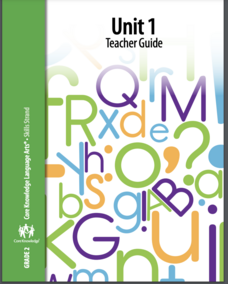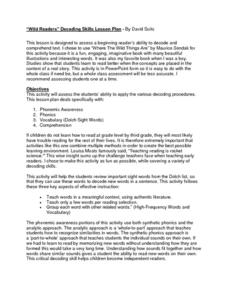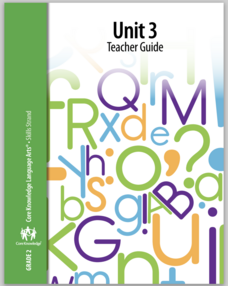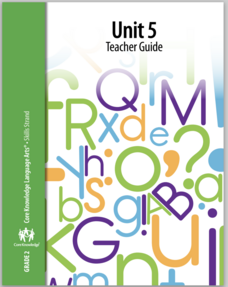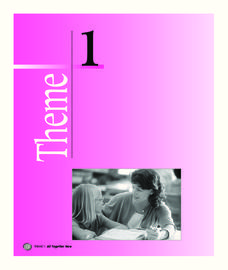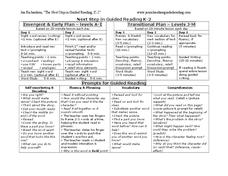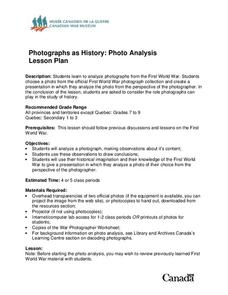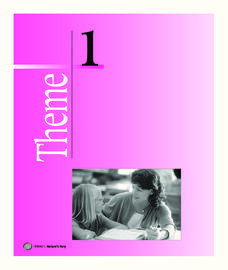Core Knowledge Foundation
Second Grade Skills Unit 1: The Cat Bandit
For twenty-two lessons over five weeks, scholars practice sound-spelling correspondence, spelling patterns, tricky words, and reading decodable text. Assessments aid in small group formation and gauge comprehension. Lessons begin with a...
Core Knowledge Foundation
Second Grade Skills Unit 4: The Job Hunt
Second graders practice skills, including spelling, grammar, and reading. Pupils examine vowel sounds and tricky words, nouns, and verbs. They begin the writing process by drafting a persuasive letter and decoding texts.
David Suits
“Wild Readers” Decoding Skills Lesson Plan
Set young readers on the path toward fluency with this phonemic awareness resource. Based on the award-winning children's book, Where the Wild Things Are, this lesson allows beginning readers to practice isolating...
Core Knowledge Foundation
Kindergarten Skills Unit 10
A six-week unit wraps up kindergarteners' skills practice in beginning reading skills. Twenty-nine lessons focus on long vowel sounds and 11 tricky high-frequency words. Scholars participate in warm-up activities, introductions to sounds...
Core Knowledge Foundation
Second Grade Skills Unit 3: Kids Excel
The unit offers second graders skills practice in tricky spelling and words, grammar—nouns and punctuation, reading decodable texts, and writing a personal narrative. Lessons begin with a warm-up and go into a concept review, word work,...
Core Knowledge Foundation
Second Grade Skills Unit 5: Sir Gus
A unit focuses on second-grade skills, specifically spelling, grammar, writing, and reading. Over six weeks, scholars review spelling patterns and tricky words, and explore verb tenses, adjectives, subjects, and predicates. They write...
Core Knowledge Foundation
First Grade Skills Unit 5
Twenty-two lessons make up a unit that focuses on first-grade skills. Scholars examine spelling alternatives—their rules and patterns, practice tricky spelling and high-frequency words, explore plural nouns and sentences, read a...
Houghton Mifflin Harcourt
Give It All You’ve Got!: Extra Support Lessons (Theme 2)
Understanding word parts can play a crucial role in understanding a word in the context of a larger text. A series of extra support resources designed to accompany Theme 2: Give It All You've Got offers activities related to grammar and...
Texas Center for Learning Disabilities
Second-Grade Explicit Intervention
Unfortunately, not all students learn to read at the same pace, but with the help of this resource, you can ensure that they all receive the support they need to reach this important goal. Comprised of short...
PBS
Decoding Media Bias
Alternative facts? After watching the We The Voters film, "MediOcracy," viewers compare how cable news outlets CNN, Fox News, and MSNBC report the same story about politics or public policy. After a whole-class discussion of their...
Core Knowledge Foundation
Kindergarten Skills Unit 4
Fifteen lessons make up a unit that focuses on letter-sound correspondence. Beginning readers examine letters and their sounds. Scholars complete a review, an engaging activity, watch teacher modeling, and practice concepts. Lessons...
Core Knowledge Foundation
Kindergarten Skills Unit 9
This unit explores uppercase letters and tricky high-frequency words. Over 23 lessons, scholars review decodable and high-frequency words, examine and practice writing uppercase letters, and work with a new tricky high-frequency word....
Core Knowledge Foundation
First Grade Skills Unit 2
Nineteen lessons make-up a four-week-long unit that explores long vowel sounds, nouns, and 11 high-frequency words. Lessons scaffold information to gain confidence in reading a decodable text and answering questions. Routines include...
Texas Center for Learning Disabilities
Second and Third Grade Explicit Phonics Intervention
Support all young learners on their journey to literacy with this five-lesson reading intervention unit. Following a clearly outlined format, each lesson first engages children in practicing their phonemic awareness and phonics...
University of Texas
Alphabetic Understanding, Phonics, and Spelling
Have your youngsters reading in no time with with collection of literacy activities and lessons. Starting with a basic understanding of the alphabet, this unit progressively builds students' phonemic awareness and ability to decode...
Houghton Mifflin Harcourt
All Together Now: Extra Support Lessons (Theme 1)
All Together Now is the theme of this series of extra support lessons. The collection aids the instruction of blending sounds and reading high-frequency words through writing and reading sentences. Support also engages pupils...
Meadows Center for Preventing Educational Risk, University of Texas at Austin
Lesson 12 - Ed Suffix with Unchanging Base Words
Understanding different verb tenses begins with knowing how to decode words. A lesson on the -ed suffix with unchanging base words introduces readers to the past tense. Teachers present the skill with oral reading and spelling...
American Institute of Physics
The Tuskegee Weathermen: African-American Meteorologists during World War II
Chances are good that young scholars have heard of the Tuskegee Airmen but few would predict that these pilots had their own support in the form of the Tuskegee Weathermen. These Black meteorologists were recruited and trained to provide...
English Enhanced Scope and Sequence
Differentiate between Formal and Informal Language
The Pledge of Allegiance, the Gettysburg Address, the National Anthem, and the Preamble to the Constitution all get close attention in an exercise that asks learners to rewrite these formally-worded documents into informal language....
Wisconsin State Reading Association
Next Step in Guided Reading
Here are three guided reading lesson plan templates; each designed to meet the needs of a specific level of readers. Levels in focus are emergent, early, and transitional readers. Additionally, prompts to support your small group...
Achieve3000
Oral Reading Fluency
Accuracy, phrasing, flow, and pace, the four traits of of oral reading fluency, are the focus of a series of exercises that are designed to help readers develop these comprehension and literacy skills.
Canadian Museum of Civilization Corporation
Photographs as History
Imagine being a war photographer embedded in World War I. How do you see your role? How might your photos influence that study of the war? Of history? Class members select a photograph, adopt the perspective of the photographer, and...
Houghton Mifflin Harcourt
Nature’s Fury: Extra Support Lessons (Theme 1)
Earthquakes, hurricanes, volcano eruptions, and more. To enrich their study of nature's big events, kids map tectonic plates and major earthquake locations, identify emergency response agencies, and storyboard a film about volcanos.
Curated OER
SAT Preparation
The verbal and quantitative sections of the SAT can be a challenge for even the most erudite logophile. Prepare your test takers for the vocabulary they will encounter on standardized exams by providing them with a helpful list of roots,...
Other popular searches
- Decoding Skills Second Grade
- Phonetic Decoding Skills
- Teaching Decoding Skills
- Decoding Skills and Fluency
- Teach Decoding Skills
- Decoding Skills Worksheets
- Long Word Decoding Skills
- Encoding and Decoding Skills
- Literacy With Decoding Words
